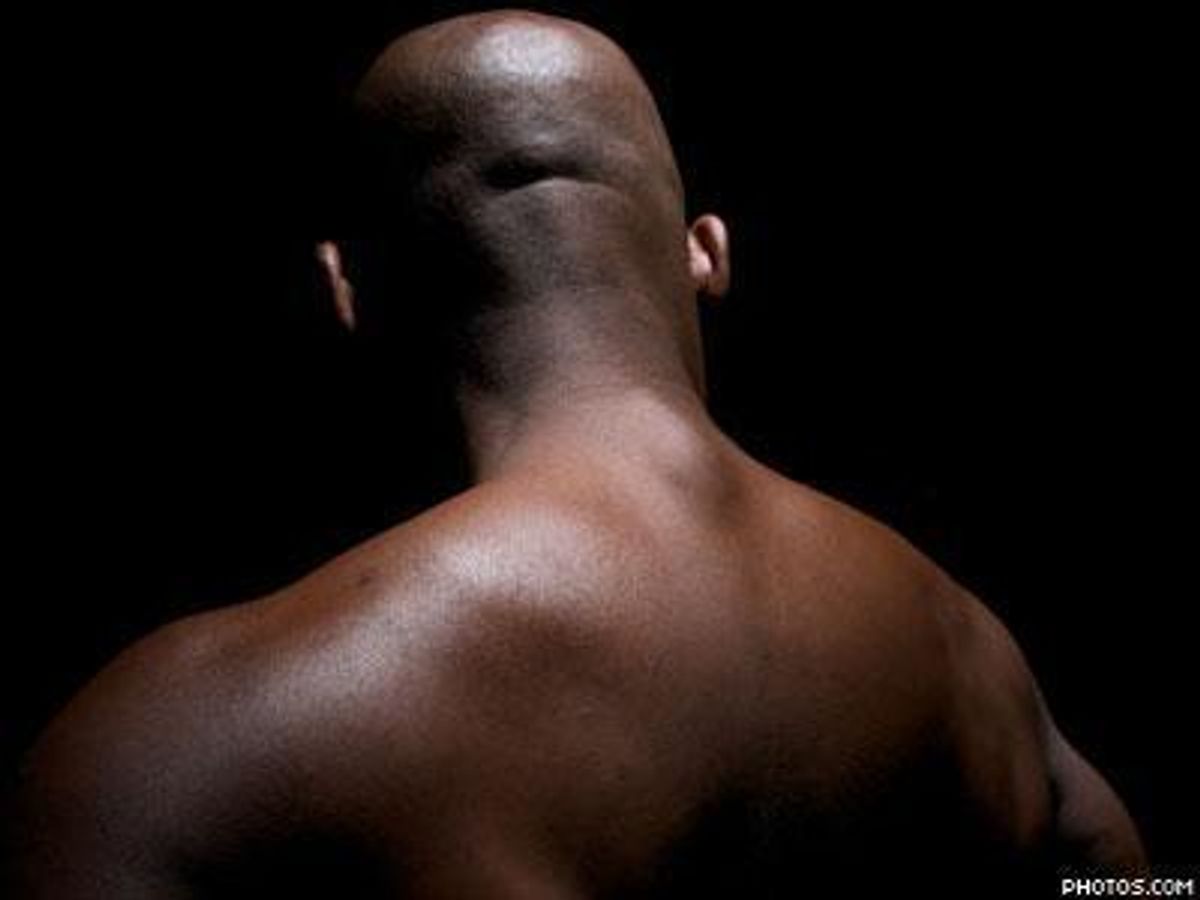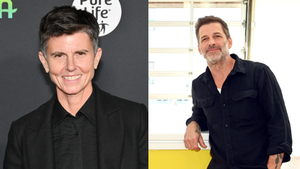The conversation around HIV/AIDS in America has in many ways evolved in recent decades. Though much of the general public has a greater knowledge of HIV/AIDS, the stigma surrounding it has not entirely dissipated and, arguably, exists in a higher concentration within the LGBT community than it did even twenty-five years ago. In a recent commentary called "Gay-on-Gay Shaming: The New HIV War," Treatment Action Group (TAG) co-founder Peter Staley noted that the health issue served as a point of organization, advocacy, and unity for LGBT people in the 1980s, but that this is no longer the case.
"HIV is now hidden," wrote Peter, "by...the very crowded HIV closet in which many now choose to live. The result is a vicious cycle where HIV-related stigma leads to more HIV while hiding its damage by instilling fear and shame in the newly infected." The "vicious cycle" of which he speaks is being perpetuated by news media, and the consequences are dangerous and targeted.
Earlier this year, a former college student from Missouri who is HIV-positive garnered widespread attention in which many outlets demonized the former student when it was discovered that he did not disclose his status to partners, many of whom he allegedly filmed. He has been arrested with felony charges of exposing others to HIV and could serve a life sentence in prison if convicted. Unfortunately, the news media—within the LGBT community and at large—have used this particular individual's actions to justify salacious and vilifying coverage that perpetuate stereotypes against HIV+ and LGBT communities.
This story directly relates to the matter of treating people who have HIV as criminals, while overlooking many of the realities with which such people struggle, like stigma and fear. Many media outlets have effectively reinforced the very issues they fail to acknowledge.
Mark S. King is an advocate, award-winning writer, and "My Fabulous Disease" blogger. He provided GLAAD with comments about the ongoing social, cultural, and legal criminalization of people living with HIV; the media's manipulation of the case at hand; and the necessary role of education in yielding sustainable solutions.
"The fact that HIV positive people are criminalized for behaviors while those who don't bother learning their status are not, tells you everything you need to know about the inanity of these laws," Mark said, referring to such laws' tendencies to discourage people from learning their HIV status, for fear of being criminalized and stigmatized. He then added, "The fact that these disclosure laws apply specifically to HIV, while other infectious diseases such as Hepatitis C and HPV are also transmittable and kill more people each year, is one indication of the homophobia and racism inherent in these laws. There aren't enough jail cells in the world to hold everyone who has transmitted a harmful pathogen, nor should there be."
In Iowa, for instance, exposing a person to HIV was punishable as a Class B felony as recently as a few weeks ago. The term "expose" was perhaps generously applied, though; in one case, a man was sentenced to 25 years in prison because--despite using condoms, being on medication with an undetectable load, and not infecting his partner at the time--he did not disclose his status. In late February, the Iowa Senate voted unanimously to update the law such that it criminalizes intentional transmission without consent. Senator Matt McCoy said that, while the bill isn't perfect, it is an important step. "We are sending a message that we will no longer stigmatize one particular group in our state," he told the Des Moines Register.
The criminalization of HIV is an issue that not only disproportionately impacts the LGBT community, but the black community as well. Black gay men in the United States are at the highest risk of contracting HIV of any people in the world, according to a 2012 report by the BLACK AIDS Institute. This report, entitled "Back of the Line," found that while HIV is twice as common among gay and bi men who are black than gay and bi men who are white, black gay and bi men are seven times more likely to have undiagnosed HIV than their white peers. Furthermore, they are less likely than white or Latino gay and bi men to live three years after developing AIDS.
This problem is severe and undoubtedly multifaceted, but has to do in heavy part with the stigma that exists within the African-American community—the stigma that LGBT and mainstream media perpetuate when they turn a blind eye to people of color and people who are HIV+.
Mark put it bluntly when he said to us, "Of course regular HIV testing and disclosure is key here. But if you don't understand why a young gay black man has difficulty disclosing his status, you're clueless as to why the epidemic is affecting young gay black men in shocking numbers. We have an environment in which those with HIV are labeled as murderers, and then wonder why they have trouble disclosing."
Ending stigma requires the appropriate tools. Cultural tools, like media representation and journalistic accuracy are necessary, but so are policy tools that build equity. Kenyon Farrow, US and Global Policy Director at TAG, spoke with GLAAD about the important role of accessible healthcare in the work to eradicate stigma. He said, "We can talk about stigma in the Black community or the Black church all we want--but it's not the Black community's fault for failing to expand the Affordable Care Act, which is being blocked in the states that have some of the highest HIV rates, especially in the South. Making sure treatment for people with HIV is affordable and accessible, and ensuring Black gay men who are HIV negative have access to regular healthcare wherever they live has to be a critical step in ending stigma and discrimination."
Without equal access to life-sustaining services, social equality cannot put down roots, and is therefore neither sustainable nor truly attainable. Influencing policy and influencing people's hearts and minds are intertwined and often symbiotic practices.
Too often and too easily, one can pick apart a cultural short-coming, such as the environment Mark described, without offering alternatives or solutions. But sustainable solutions exist in the form of education. Not only do the media need to be educated on the intricacies and intersections at play in the lives of people who are HIV+ (so that they can in turn educate those consuming said media), but people on the ground and in the LGBT community need to be educated on what it means to be HIV+. In conjunction, people who wield legislative influence (donors, voters, political officials, you name it) must understand the what resources are required for those who are HIV+ to not only survive, but thrive--physically, psychologically, and socially.
"Too many people characterize any sexual act on the part of a person with HIV as 'malicious' or 'deadly.' While intentional harm done to another person is clearly criminal," said Mark, "most scenarios exploited in the media don't pass this threshold… It's a good thing the person who infected me 30 years ago wasn't sent to jail. He'd still be sitting there, or dead, while I'm still living a full life of good health. The references to 'murder' and 'a death sentence' are outdated and reactionary."
Perhaps because the state of HIV and AIDS has changed, it's become easy for many in the LGBT community to be unaware (or choose to be unaware) of who criminalization hurts the most and how. But privilege is not, nor has it ever been, an excuse, even if that privilege exists within a group that often otherwise faces discrimination from the mainstream. As Mark explained, "Those of us who are demonizing this man are playing right into the hands of conservative prosecutors who are more than happy to put some 'diseased fags' into jail. Many people with HIV already are serving 20 year sentences for daring to have sex -- and in many cases, no transmission occurred and protection (condoms, no viral load) was in play."
GLAAD began in the 1980s as a direct response to the dehumanizing ways in which the gay community and HIV/AIDS patients were mocked in the news. Since then, our society has made huge strides in how we represent and relate to the LGBT community in entertainment media, in journalism, and even in our legal system. Recent coverage such as the case in Missouri, though, is a glaring reminder that our work is not over. In order for a solution to take shape, changes need to be made and responsibility needs to be taken within LGBT as well as mainstream media.
The news of this particular young man's behavior gives rise to conversations that extend beyond status disclosure, criminalization, race, and homophobia. Mark left us with a comment on why that should not leave the public or the media wavering when it comes to choosing education over criminalization. "If we are to truly understand the complexity of, and barriers to, HIV disclosure," Mark concluded, "then we must have the fortitude to do that even in scenarios that we find morally and ethically abhorrent, and that includes horny college students with a video fixation…The compassion with which we once approached those with HIV has been replaced with furious finger pointing and a criminal mindset. I find that far more disheartening than the actions of this student."
ABOUT THE AUTHOR
Alexandra Bolles is a Media Programs Fellow at GLAAD, where this article was originally published. It's reprinted here with their permission.








































































